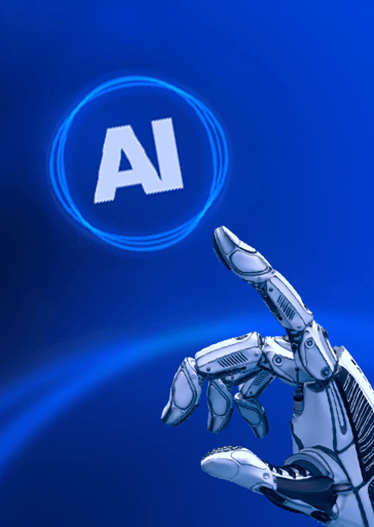How AI Is Turning The Table On Waste And Abuse In Healthcare
Healthcare
How AI Is Turning The Table On Waste And Abuse In Healthcare
AI steps into healthcare territory to address one of its most persistent challenges. But in typical AI fashion, it doesn’t stop there. It’s opening the door for a smart and innovative approach to care.
If we had to define healthcare in a couple of words, it would boil down to insight and action. It’s a well-rounded representation of the essential aspects of healthcare. The gathering and analysis of patient data on one hand and the execution of care procedures on the other.
But between those two pillars lie some intricacies that are increasingly becoming a cause for concern. Waste and abuse is a prime example. In fact, it has been reported that almost 25% of total U.S healthcare expenditure is wasteful.
Fortunately, AI shows up again for the rescue. With advanced machine learning models handling waste and abuse, things are shaping up for the better. Let’s find out how.
AI, the waste and abuse police
Waste and abuse in healthcare are not just small oversights; they can have a sizable impact on costs. Examples range from redundant procedures to administrative errors that lead to unnecessary payments. Traditionally, these inefficiencies have been identified only after the fact through labor-intensive audits.
AI brings a new approach that enables healthcare organizations to detect and prevent waste in real time.
In a system as vast as healthcare, data exists in staggering volumes across insurers, providers, and digital health services. AI, and more specifically, advanced machine learning algorithms, process this data quickly and look for patterns that suggest waste or misuse.
For example, machine learning can identify when certain services are repeatedly ordered and distinguish cases of chronic disease from instances of overutilization or inefficiencies in care delivery.
In short, AI brings in a proactive approach that entails managing waste effectively and preventing unnecessary expenses before they become major issues.
The complexity of waste detection
Detecting waste in healthcare isn’t as straightforward as it sounds. It can be subtle, often entangled with legitimate care. Unlike clear-cut cases of fraud, waste can involve well-meaning providers who may order extra tests out of caution or unintentionally repeat procedures.
AI shines in these scenarios. It uses pattern recognition to separate unavoidable practices from those that can be optimized.
Machine learning can recognize these inefficiencies by analyzing patterns across thousands of claims. For instance, if certain procedures are ordered with unusual frequency for a specific patient demographic, it might flag this as an area for further review. Or if particular administrative steps are causing claims to be filed incorrectly or duplicate processing, AI can detect this trend and alert administrators.
By looking at healthcare patterns holistically, AI catches small inefficiencies that add up to substantial waste over time and provides insights that can help streamline operations.
AI-driven predictive analytics
One of AI’s most powerful capabilities is predictive analytics, which goes beyond identifying current inefficiencies to forecasting future ones.
By analyzing patterns in historical data, machine learning can anticipate where waste and abuse might arise next. Predictive analytics examines trends across multiple data points, from service types to patient demographics, in order to pinpoint claims that may need further review.
For instance, if a specific billing practice has historically led to duplicated claims or unnecessary treatments, predictive analytics can identify this as a risk area. Healthcare providers can then take steps to prevent these inefficiencies in future claims.
This prognostic approach minimizes the need for time-consuming audits and lets providers focus resources where they’re most effective and reduce the costs and administrative burdens tied to reactive waste management.
Analysts and AI working hand in hand
AI’s purpose isn’t to replace human expertise; it’s to support and enhance it.
In healthcare, complex decisions require both data-driven insights and human judgment. While machine learning can easily process large volumes of data and spot patterns, human reviewers bring context and judgment to these findings. By taking on repetitive, data-heavy tasks, AI frees up healthcare professionals to focus on nuanced, high-value decision-making.
For example, once AI flags potential overuse of a specific procedure, human analysts can review the case to determine if it’s a genuine issue or simply reflects a legitimate care need. This collaboration ensures that AI insights are actionable and accurate without sacrificing care quality.
LLMs and the advancements they bring
When Large Language Models (LLMs) are brought up, AI in healthcare automation might not be the first thing to pop into mind. But that is changing.
By analyzing various types of medical/health data, LLMs can generate actionable insights with a focus on efficiency and waste reduction. Their applications cover a wide range of critical functions, including:
- Cost benchmarking: Highly accurate and faster benchmarking as opposed to traditional statistical models based on demographics and medical history.
- Member engagement: Health diagnoses identified by analyzing wearable-generated data.
- Medical claim audit: Unstructured medical documents such as records, lab reports, and imaging reports processed to pinpoint any inconsistencies or discrepancies in the healthcare provider’s performance.
- Medical assessment: Continuous assessment of patient medical history and lifestyle to predict complications and prioritize care coordination.
All of the above can be of great help in detecting any form of waste and abuse in healthcare and dealing with it on the fly. This has efficiency and effectiveness written all over it, placing LLMs as a key tool in the toolbox of healthcare providers.
Wrapping up
It comes as no surprise that AI can be this powerful in combatting waste and abuse in healthcare. With so many innovative methods on the table, it’s not only proving to be an efficiency optimizer, but it’s also ushering in new business models based on fresh approaches to healthcare. Models with proactive monitoring that make better use of resources and offer better catered care. Models that are dynamic in nature and create better outcomes for everyone.
Get on board the AI in healthcare automation train and start building tomorrow’s digital healthcare model today!

Senior Lead

AI SERVICES & SOLUTIONS
From supercharging the performance of your business operations and optimizing efficiencies to personalizing experiences, our next-gen AI services & solutions turn domain-specific challenges into new opportunities to make your ambition a tangible reality.




